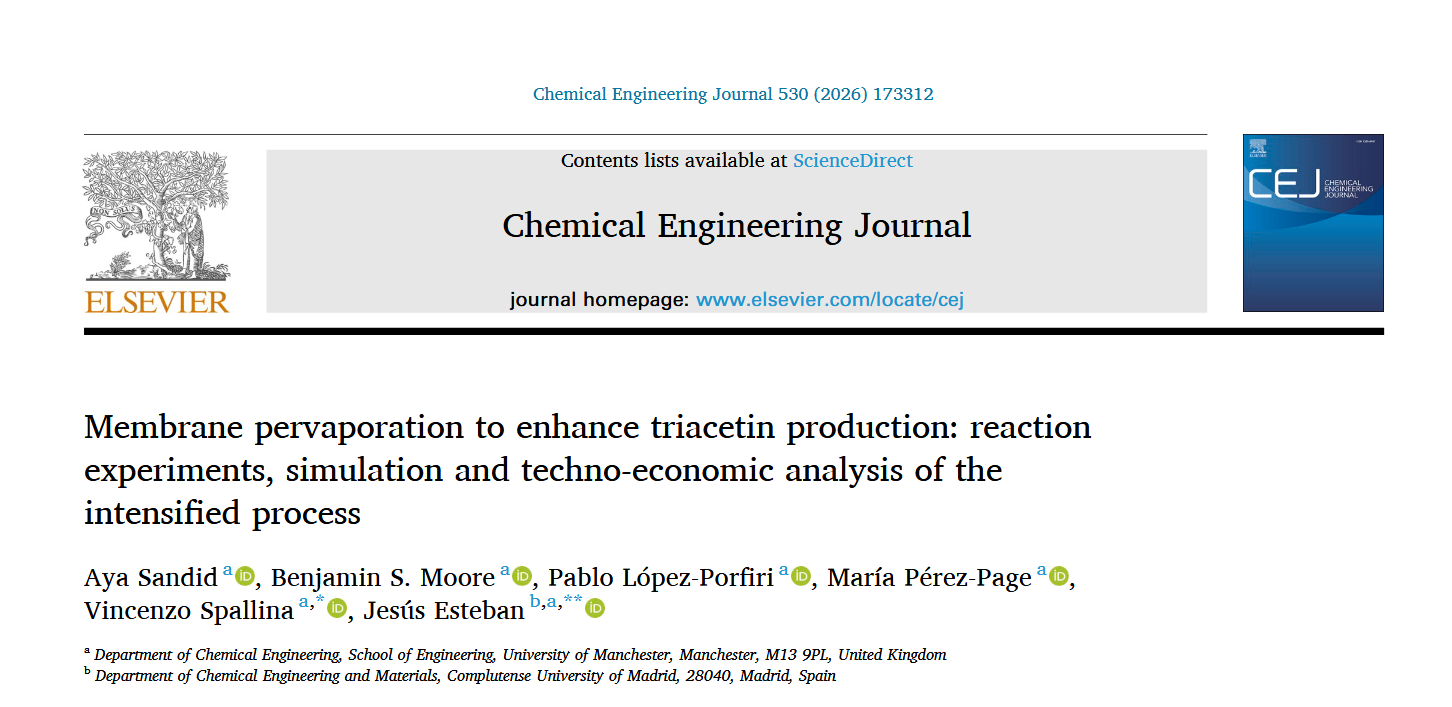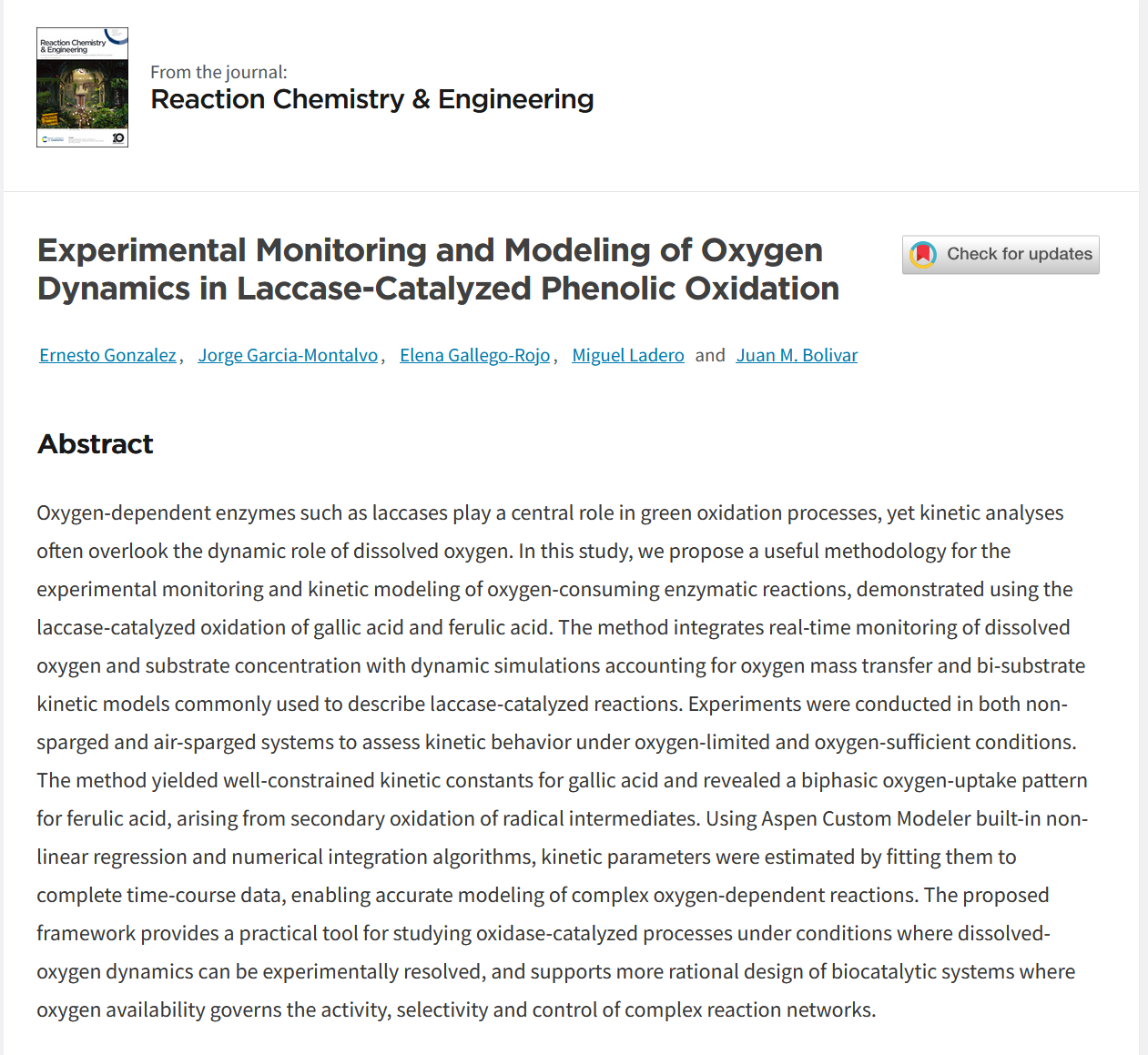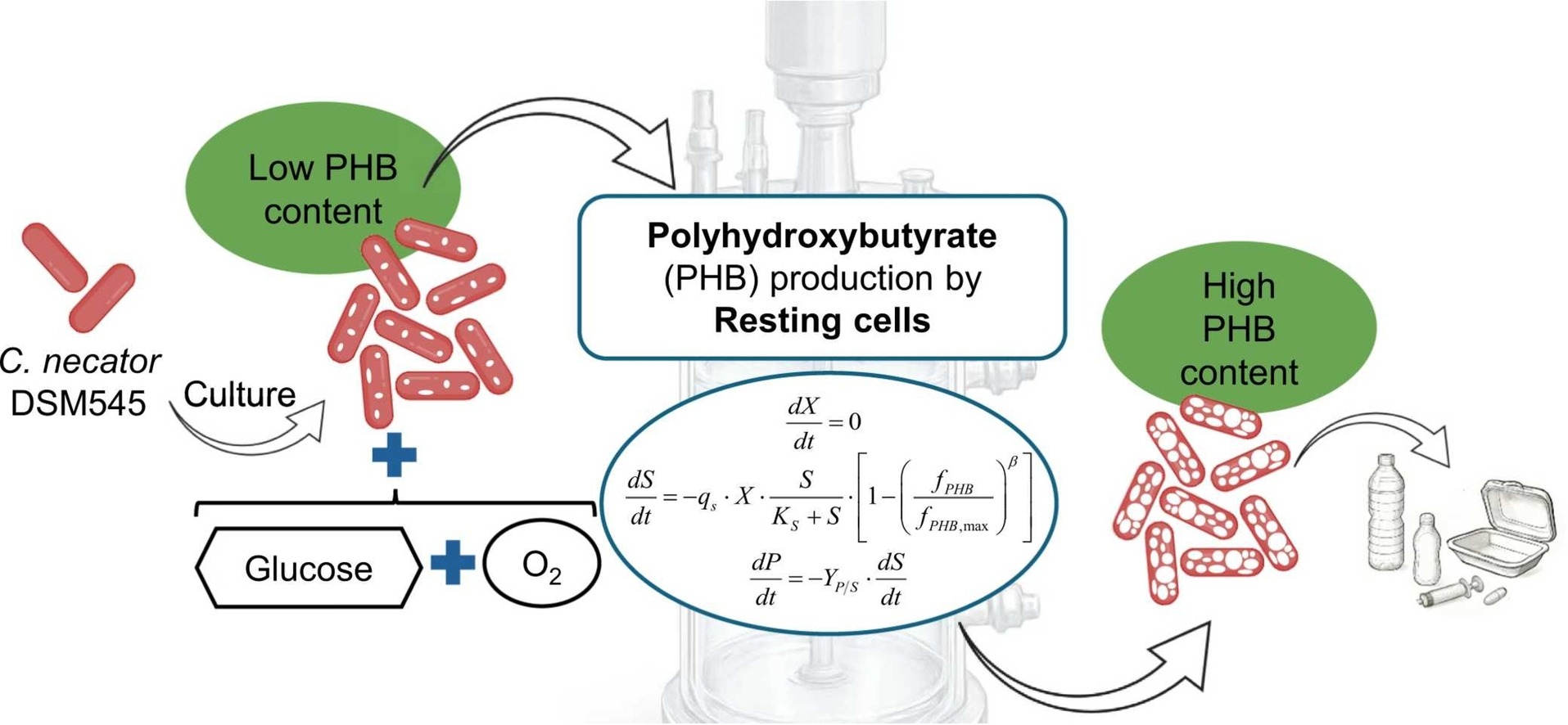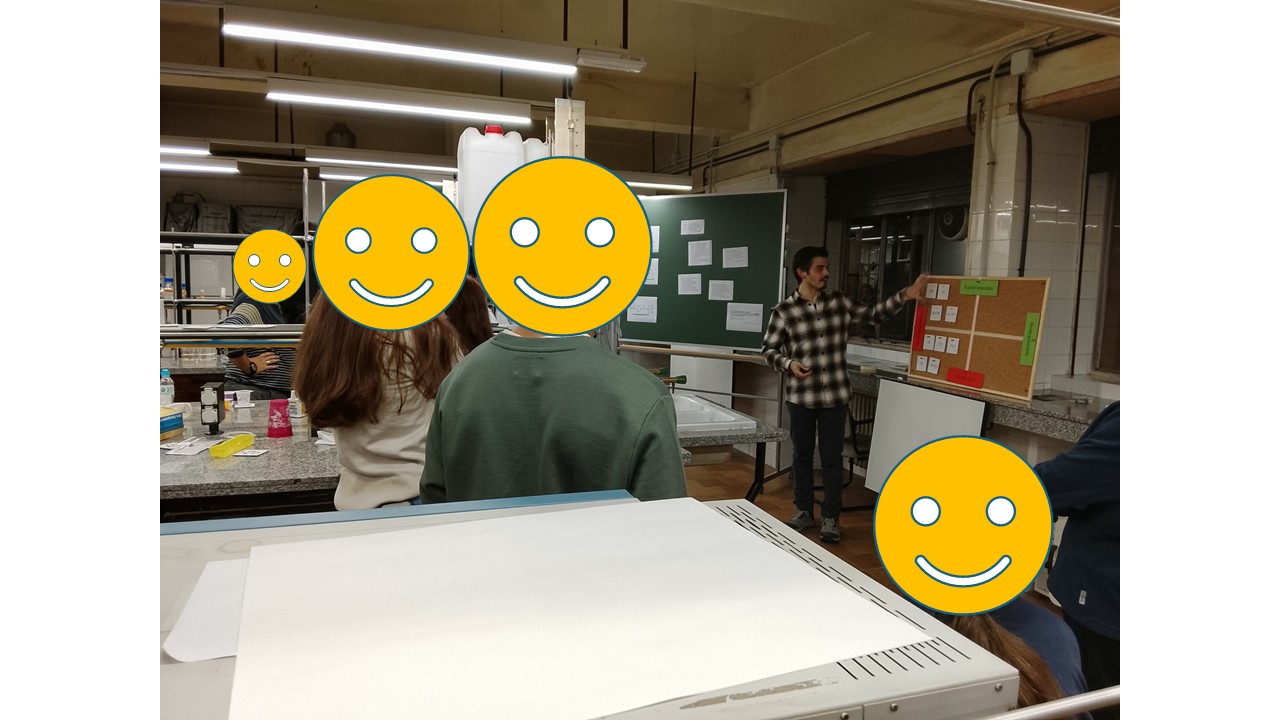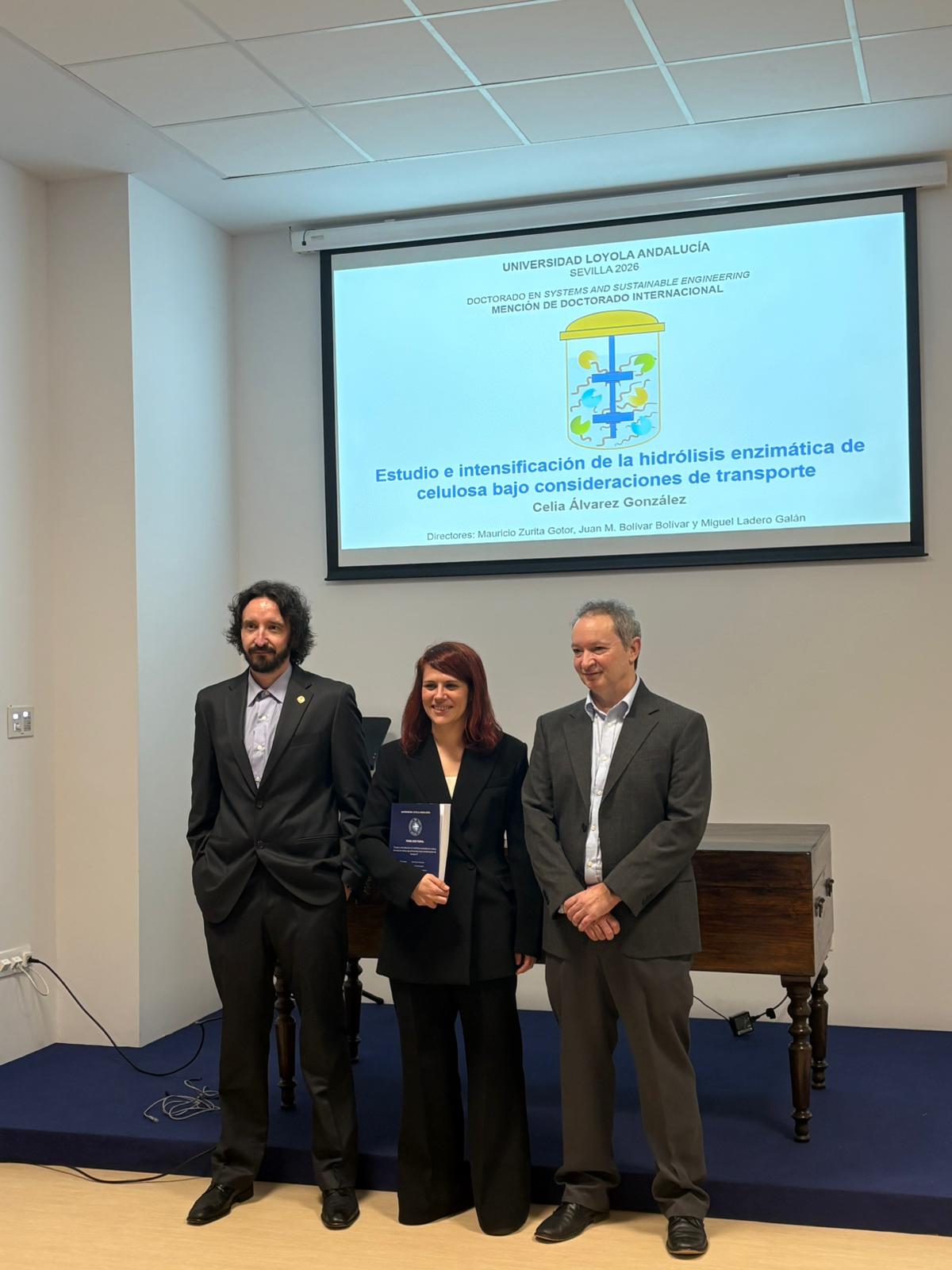
News and Announcements
New publication: Membrane pervaporation to enhance triacetin production: reaction experiments, simulation and techno-economic analysis of the intensified process
30-01-2026
Nueva doctora en el grupo. Enhorabuena, Celia
29-01-2026
New publication: Experimental monitoring and modeling of oxygen dynamics in laccase-catalyzed phenolic oxidation
14-01-2026
New publication: Modelling growth-arrested production of polyhydroxybutyrate by Cupriavidus necator DSM 545
12-01-2026
Oferta de contrato predoctoral
05-12-2025
Proyecto: Producción de ácido 2,5-furandicarboxílico (FDCA) por vía catalítica y enzimática
Attending the HORIZON DECADES Consortium Meeting in Hannover
24-11-2025
New publication: (Deep) eutectic solvents for the separation of platinum group metals and rare earth elements: Characteristics, extraction mechanisms and state of the
14-11-2025
New publication: 3D Printing of Chitosan Scaffolds and Films with Varying Roughness for Cultivation of Human Retinal Progenitor Cells
14-11-2025
Congrats to Juan M. Bolivar for being in the top of 2% of scientists worldwide in the Stanford–Elsevier 2025 ranking
14-11-2025
Participation of Juan M. Bolivar in 6th European Summer School on Microfluidics
14-11-2025
Defensa de Tesis de David González Miranda
14-11-2025

